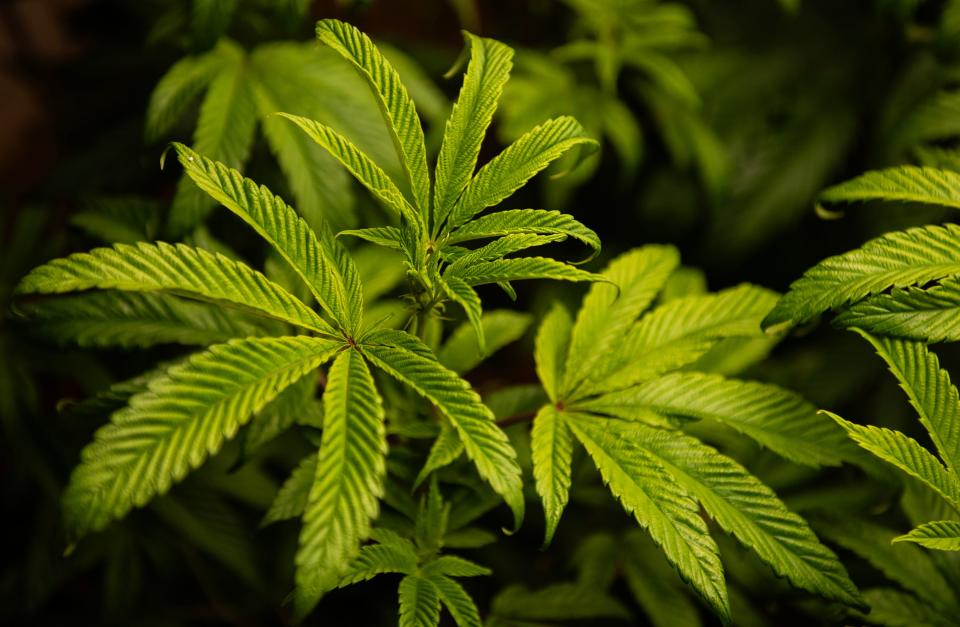What would Biden administration proposal mean for marijuana in Mississippi? Details here
Over the past several decades, marijuana has remained a prevalent and complex issue within the U.S. government.
Complicated and sometimes outdated laws pertaining to medical and recreational marijuana often make the matter harder to navigate.
If the Biden administration moves forward with a recently proposed plan aiming to reclassify marijuana, the results could make major waves within the U.S. marijuana industry. It could also mean a great deal for Mississippi.
Proposal to reclassify marijuana
The proposed plan would reclassify marijuana from a Schedule I drug to a Schedule III.
A Schedule I drug is characterized by a drug that has no medical use. Any drug classified as Schedule I is illegal. Examples of Schedule I drugs include heroin, LSD and ecstasy.

A Schedule III drug, on the other hand, is characterized by a low chance of physical or psychological dependence. Examples of Schedule III drugs include Tylenol or anabolic steroids.
The scale goes from Schedule I to Schedule IV.
Marijuana became a Schedule I drug under the Controlled Substance Act of 1970.
The Agriculture Improvement Act, also known as the Farm Bill, of 2018 shifted marijuana's status slightly. The drug is still classified as Schedule I, but the bill made products containing less than 0.3% of THC, the most intoxicating component in cannabis, legal.
If the Biden administration implements the proposed plan, the state of marijuana will change drastically throughout the nation, but maybe not in the way you think.
The plan will not actually legalize marijuana. All it would do is change the drug's classification.
The plan is a baby step toward the national legalization of marijuana. However, the most significant change this plan would bring is within the research field.
Since marijuana is currently classified as a Schedule I drug, the requirements to be able to research the drug are extremely strict and the steps are difficult to take.
A reclassification would mean more labs and pharmacy companies can begin more extensive research into medical marijuana and its uses.
The proposed plan still awaits public comment and will not reach a finalized decision in the near future.
More details on proposed plan: Biden administration plans to drastically change federal rules on marijuana
Coming fall 2024: Ole Miss to offer medical marijuana master's degree. Here's what to know
What would it mean for Mississippi?
For Mississippi, the main changes that would come with the plan center around research.
Robert Welch, director of the National Center for Cannabis Research and Education at the University of Mississippi, said reclassifying marijuana would open up research significantly due to the current restraints placed on researching Schedule I drugs.
"If you want to work with cannabis, you have to get a DEA (Drug Enforcement Administration) Schedule I license," Welch said. "Well, that's a pretty arduous and costly level to get just because you're handling illicit material."
If the plan is put into place, the cannabinoid industry has the potential to boom in the coming years.
"I think a lot more pharmaceutical companies are going to jump into the fray on development of different cannabinoid products," Welch said. "Companies will be a little more tempted to involve themselves with these products because (research regulations would be) less strict."
Since 1968, the University of Mississippi has been the only federally funded facility growing marijuana for research purposes. Eventually, if other facilities around the state and the nation are able to grow marijuana for research, some of the burden will lift from the University of Mississippi's facility.
"We're the ones that have been supplying all that material," Welch said. "Well, this could potentially open that up a great deal. That's going to take time to get there."
Because of loopholes within the 2018 Farm Bill and widely unenforced laws, many gas stations and vape stores, including those in Mississippi, today sell products that contain intoxicating cannabinoids. An example of these products is a vape containing Delta 8, a popular cannabis compound.
"What happened is folks started interpreting (the 2018 Farm Bill) such that they foresee it as legal to be able to sell all this intoxicating stuff," Welch said. "But that's not what the bill meant. It was trying to help folks that were interested in creating hemp products and CBD products. But, there's wording in that bill that talks about derivatives."
These unregulated derivatives, Welch said, often contain additives including hydrochloric acid. Welch said he and his students have tested products like Delta 8 in the lab and have found several impurities and byproducts.
The reclassification of marijuana would put constraints on these products.
More in state news: See which Mississippi high school earned the highest ranking from U.S. News list
What comes next?
All of these potential effects of the proposed plan depend on the plan's wording, Welch said.
The proposed plan will next receive public comment, which will include feedback from experts like Welch.
Welch anticipates some initial confusion over what the plan actually means for the U.S.
The proposed plan will not have clear, immediate effects. Eventually, however, the plan could create drastic changes when it comes to how marijuana is regulated and perceived within the U.S.
"This is just the next step toward a more robust federally approved program and then a recreational arm," Welch said. "This has to happen first."
Got a news tip? Contact Mary Boyte at mboyte@jackson.gannett.com
This article originally appeared on Mississippi Clarion Ledger: The future of marijuana in MS under proposed Biden national plan

